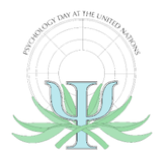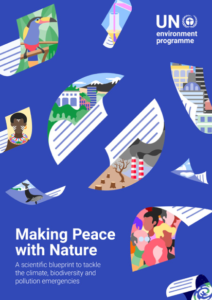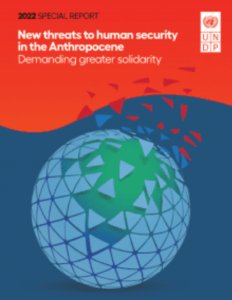
Editor’s Note:
The GNPHR Bulletin focuses each month on a specific topic chosen in accordance with relevant UN events or UN commemorative days for that month. The April theme coincides with International Mother Earth Day. Special section editor is Kerstin Søderstrøm, Norway
Table of Contents
Special Section: INTERNATIONAL Mother Earth Day, April22
- Introduction
- Letter to Mother Earth (GNPHR April Blog)
- Related Articles and Resources
CONTENT AREAS: ARTICLES AND NEWS
- Children/Youth
- Climate Change
- Data Rights
- Decolonization/Indigenization
- Human rights education
- Inclusion, Exclusion, Racism
- LGBTQ+
- Mental Health & Human Rights
- Women
GNPHR NEWS
Webinar Series – Human Rights and Psychology
Next Webinar: May 16, 2022 – Flight and Human Rights. Speaker: Dr. Uli Wagner. Discussion about the rejection of refugees by receiving countries. 10:00 EDT and 16:00 CET. Register here
See Recording of Webinars in 2022:
- Human Rights – How Are They Important to the Profession of Psychology. Nora Sveaass and Mike Wessells used vivid examples to show why it is important for a psychologist to know about and protect clients from human rights violations.
- Women and Human Rights: Concepts, Debates and Implications for Psychology. Dr. Shawn M. Burn & Dr. Silvia S. Canetto discuss a variety of definitional issues and ways to conceptualize human rights from a feminist perspective.
 Read the April Blog
Read the April Blog
Letter to Mother Earth – Sorry for the Code Red Situation
Kerstin Søderstrøm
UPCOMING EVENTS
Online Launch Event: Global Launch of the WHO QualityRights e-training to advance mental health, eliminate stigma and promote community inclusion
 Psychology Day at the United Nations
Psychology Day at the United Nations
Psychology Day at the United Nations – Building hope: Contributions to a roadmap for climate action
Thursday April 21 2022, 11 AM (4 PM GMT) – 2 PM EDT (7 PM GMT)
Psychology Day at the United Nations is a celebration of psychology in the context of the United Nations. It provides an opportunity for psychology to share with U.N. Permanent Missions, U.N. agencies, NGOs and the private sector the activities of psychologists at the U.N. and the role of psychology in addressing concerns of global importance. Psychology Day also introduces psychologists and psychology students to psychology’s current and potential involvement in U.N. activities and issues.
Register Here: https://us02web.zoom.us/webinar/register/WN_WH3mfMhBSoOuPdfM14w89w
SPECIAL SECTION

Mother Earth is clearly urging a call to action. Nature is suffering. Oceans filling with plastic and turning more acidic. Extreme heat, wildfires and floods, as well as a record-breaking Atlantic hurricane season, have affected millions of people. Even these days, we are still facing COVID-19, a worldwide health pandemic linked to the health of our ecosystem.
Climate change, man-made changes to nature as well as crimes that disrupt biodiversity, such as deforestation, land-use change, intensified agriculture and livestock production or the growing illegal wildlife trade, can accelerate the speed of destruction of the planet.
This is the first Mother Earth Day celebrated within the UN Decade on Ecosystem Restoration. Ecosystems support all life on Earth. The healthier our ecosystems are, the healthier the planet – and its people. Restoring our damaged ecosystems will help to end poverty, combat climate change and prevent mass extinction. But we will only succeed if everyone plays a part.
For this International Mother Earth Day, let’s remimd ourselves – more than ever – that we need a shift to a more sustainable economy that works for both people and the planet. Let’s promote harmony with nature and the Earth. Join the global movement to restore our world!
Letter to Mother March – Sorry for the Code Red Situation
April GNPHR Blog – a personal letter of apology and home – read here
References and Resources
The official website: Earth Day: The Official Site | EARTHDAY.ORG
Climate and environmental literacy: Climate Literacy | EARTHDAY.ORG
SDG Update Newsletter About the SDG Update Newsletter | SDG Knowledge Hub | IISD
International Mother Earth Day 2022 – Awareness Days Events Calendar 2022). https://www.un.org/en/observances/earth-day
IPBES (2019). Global assessment report on biodiversity and ecosystem services of the Intergovernmental Science-Policy Platform on Biodiversity and Ecosystem Services. E. S. Brondizio, J. Settele, S. Díaz, and H. T. Ngo (editors). IPBES secretariat, Bonn, Germany. 1148 pages. https://doi.org/10.5281/zenodo.3831673
IPCC (2021). Synthesis Report of the Sixth Assessment Report – A Report of the Intergovernmental Panel on Climate Change. Retrieved from https://www.ipcc.ch/ar6-syr/
Clayton, S., & Manning, C. (2018). Psychology and Climate Change: Human Perceptions, Impacts, and Responses. San Diego: San Diego: Elsevier Science & Technology.
Klein, N. (2014). This changes everything : capitalism vs. the climate. London: Allen Lane.
Leopold, A. (1949). A Sand County Almanac: and sketches here and there. Oxford: Oxford University Press.
Maier, K. J., Whitehead, G. I., & Walter, M. I. (2018). Teaching Psychology and Climate Change: One Way to Meet the Call for Action. Teaching of psychology, 45(3), 226-234. doi:10.1177/0098628318779261
Marselle, M. R., Stadler, J., Korn, H., Irvine, K. N., & Bonn, A. (2019). Biodiversity and health in the face of climate change(1st ed. ed.).
Mathers, D. (2020). Depth Psychology and Climate Change: The Green Book. Milton: Milton: Taylor and Francis.
Articles Related to April 22 Mother Earth Day
EARTHDAY.ORG Statement on hostilities in Ukraine, February 24, 2022
As events unfold in Ukraine, everyone at EARTHDAY.ORG would like our partners and supporters in that country to know that we are deeply concerned and thinking of everyone in these perilous times.
As an organization we’ve always held a special place in our hearts for the people of Ukraine. In 2005, right after the Orange Revolution, our flagship international event that year took place in the center of Kiev, Ukraine and attracted a crowd of some 150,000 throughout the day on April 23rd. The “Green Revolution Meets Orange Revolution” event harnessed the energy of the country’s nascent democracy movement and was celebrated by people all over Ukraine. It was an amazing time for both democracy and the environment, and over the years we have seen this movement grow, not without challenges like the rest of us, but we are very proud of the progress that has been made.
The event empowered many Ukrainian NGOs, including nascent environmental groups and Chernobyl survivors—allowing them to express their concerns about environmental issues and reach a broad range of their fellow citizens. The event also launched a campaign aimed at passing legislation to deal with the country’s serious solid waste disposal issues.
As Ukrainians face one of the most serious threats in recent history to their nation’s existence and way of life, it is our hope that we can come together to resolve this crisis in a peaceful manner and continue to work with everyone to protect our planet and our people.
https://www.earthday.org/earthday-org-statement-on-hostilities-in-ukraine/
 The ‘Profoundly Radical’ Message of Earth Day’s First Organizer
The ‘Profoundly Radical’ Message of Earth Day’s First Organizer
John Schwartz, NY Times, April 20, 2020
One day in the fall of 1969, Denis Hayes, a graduate student at Harvard, snagged a 10-minute meeting with Gaylord Nelson, a United States senator from Wisconsin who had been talking up his idea for a national teach-in about environmentalism.
The visit stretched into a two-hour conversation, and at the end of it Mr. Hayes had a job. He ended up organizing the original Earth Day on April 22, 1970.
Mr. Hayes has participated in many other Earth Day events in the years since, so it should be no surprise that he is chairman emeritus of Earth Day 2020, which has shifted, in the time of coronavirus, to the digital realm. It has also come to focus on another threat to the planet, climate change, which 50 years ago “was not part of the national discussion,” Mr. Hayes said.
 New Threats to Human Security in the Anthropocene. UNDP, 8 February 2022
New Threats to Human Security in the Anthropocene. UNDP, 8 February 2022
6 in 7 people worldwide plagued by feelings of insecurity, reports UN Development Programme
New UNDP report shows growing sense of insecurity among people despite years of development growth prompting calls for solidarity and refocusing development efforts
New data and analysis in the report, New Threats to Human Security in the Anthropocene, shows that people’s sense of safety and security is at a low in almost every country, including the richest countries, despite years of upwards development success. Those benefiting from some of the highest levels of good health, wealth, and education outcomes are reporting even greater anxiety than 10 years ago.
CONTENT AREAS AND NEWS
Children/Youth
The Best Interests of the Child and the Right to Inclusive Education. Philip Veerman, child psychologist, specialising in forensic psychology, health psychology, and human rights. The International Journal of Children’s Rights, 28 Feb 2022 (online abstract). https://brill.com/view/journals/chil/aop/article-10.1163-15718182-30010012/article-10.1163-15718182-30010012.xml
“The drafters of the UN Convention on the Rights of Persons with Disabilities (CRPD) incorporated the concept of inclusive education into Article 24 of the CRPD. Many consider this to be a new children’s right. The inclusive education idea has played since 2006 a role in interpreting CRC Article 23 (rights of children with disabilities), Article 28 (right to education) and Article 29 (aims of education). The relationship between these two complementary human rights Conventions (CRC and CRPD) is described and the question raised by Sandland and discussed here is if there is a “Clash of Conventions”. The disability rights perspective created an ideological battle between advocates of the closure of special education and those who oppose it. The author supports the proposal (More and More Inclusive, 2020) by the Dutch Education Council to the Minister of Education to bring special and regular education closer to each other, but not closing special education.”
The 2020 Beirut Blast Killed My Son. The UN Must Investigate Who Is Responsible for the Deadly Explosion. Sarah Copland, has worked for the United Nations for the last five years, most recently in Beirut, where she worked on advancing gender equality and women’s rights in the Arab region, Pass Blue, 14 March 2022.
“The author’s two-year-old son, Isaac, was one of the youngest victims in the Beirut blast of August 2020. She and a group of international legal experts are now calling for the Human Rights Council to commission an independent investigation into the origins of the explosion and who was responsible for the earth-shattering detonation.
It is time for the international community to investigate what happened: the blast will not fade from our collective memory. That is why a group of victims and I, working with Legal Action Worldwide, a human-rights organization led by lawyers working in fragile and conflict areas, are calling for a Human Rights Council resolution to create an independent, impartial and transparent fact-finding mission to determine the causes of the explosion and who was responsible.
Such an investigation, free from political interference and intimidation, will assist and support the efforts of the domestic investigation underway in Lebanon. So far, that hasn’t yielded any meaningful progress. Politicians and ministers, including those directly implicated in the blast, have been granted immunity. When victims and parents who lost their children like me protested this fact, we were met with riot police and tear gas.
If commissioned, such a UN probe would be far from unprecedented. According to the Office of the High Commissioner for Human Rights’ website, UN-mandated investigations are “increasingly being used” to respond to serious violations of international humanitarian and human rights law, whether protracted or resulting from sudden events, and to promote accountability for such violations and counter impunity.”
Climate Justice
Can international law offer protection to those at risk of climatic statelessness? Jo Venkov, lawyer and writer on statelessness, identity, citizenship and belonging, ENS, 25 February 2022.
Scholarship on the impact of climate change on migration has tended to focus on refugee populations, but growing scholarship highlights the impending risks of statelessness for affected populations. What would happen if an entire state disappeared due to the effects of climate change? And what would be the citizenship status of its displaced inhabitants? Would this be the first instance of ‘climatic statelessness’? This piece presents key issues explored in more detail on the Torn Identity blog.
Data Rights
The computer said it was OK!”: human rights (and other) implications of manipulative design (Part 1/2). Silvia-De-Conca, Human Rights Here, 23 March 2022.
On November 19th, 2021, the “Human Rights in the Digital Age” working group of the NNHRR held a multidisciplinary workshop on the legal implications of ‘online manipulation’. This is Part 2 of a two-part series.
Manipulative design, autonomy, and human rights. By turning individuals into means to an end, manipulative design infringes on their dignity, because it affects their intrinsic value as human beings. Manipulative design is a constraint to individual autonomy, whether it is used for ‘paternalistic’ policymaking or by companies for profit. The very nature of manipulation makes it incompatible with self-determination because manipulation acts beyond the control of the addressees, covertly steering their decision-making processes. Autonomy is one of the values underlying many human rights provisions. The European Court of Human Rights (ECtHR) has consistently affirmed that autonomy is an underlying principle, functional to interpreting some of the guarantees and protections offered by the European Convention for Human Rights (ECHR). This is the case, for instance, of the right to privacy (article 8 ECHR), that has been interpreted as protecting autonomy and self-determination.
Decolonization / Indigenization
It’s Time to Decolonize the Decolonization Movement. Ijeoma Nnodim Opara, MD, PLOS Blogs, July 29, 2021.
These days, one can barely throw a stone in a global health space without hitting something to do with decolonizing global health. The decolonization of global health is the latest topic du jour and everyone is an expert. From blog posts to journal articles and webinars to conferences, the calls to decolonize echo throughout the cybersphere of institutions in the Euro-American region, twirling in and out of social justice conversations and dancing on the edges of diversity, equity, inclusion (DEI) discourse.
“Global health must be decolonized!” is the growing call to action. But, how? And do folks understand what the term ‘decolonization’ actually involves?
Human Rights Education
Socializing Human Capital for Twenty-First Century Educational Goals: Suggestive Empirical Findings from Multinational Research. Michael H. Bond and Yiming Jing, The Oxford Handbook of Higher Education Systems and University Management (Eds. Gordon Redding, Antony Drew, and Stephen Crump). Online Publication Date: Jul 2019 DOI: 10.1093/oxfordhb/9780198822905.013.3
Abstract: Crucial to global HE are the differences in the socialization processes that prepare students prior to their entry to universities. This preparation is analysed to reveal variations that are likely to affect the building in a society of the human capital capabilities: cognitive, empathetic, and interpersonal. The nature and availability of these resources is seen as key to a society’s ability to generate innovativeness and cooperativeness. Data are analysed from representative populations in seventy-nine nations positioned in a two-dimensional matrix of Practicality vs. Civility and Other-directedness vs. Self-directedness.
This mapping permits comparison between societies on the initial mental structures of meaning and relevance brought by students into a nation’s classrooms. Implications are drawn for current forecasts of skills appropriate to living in twenty-first century conditions.
The package of ‘skills’ is a prescription for economic development by widely encouraging personal development through extensive, effective education, cooperativeness with diverse others, human rights protection, and innovation throughout the society.
Inclusion, Exclusion, Racism
[from the introduction to the Special Section] “As Perspectives readers likely know, in 2017, the late Scott Lilienfeld published a pointed critique of the construct of microaggressions in the journal. The idea for this special issue was inspired by the sometimes fraught conversation that emerged around that critique, in particular the tension it revealed between empirical skepticism and experiential reality (Sue, 2017). If anything, since Lilienfeld’s critique, microaggressions have become even more salient in our lives (Goldberg, 2020).
I decided to devote an entire issue to microaggressions so that the journal might host a conversation with people who have firsthand experience with racism and microaggressions. I sought a guest editor of the issue in the same spirit—to avoid yet another white person (me) being at the center of that conversation. Monnica T. Williams, Associate Professor and Canada Research Chair in Mental Health Disparities at the University of Ottawa, graciously agreed to serve as guest editor, taking on the considerable labor that such a role entails. I am profoundly grateful to her for taking time and energy away from her many commitments as scientist, mentor, trainer, teacher, therapist, and public speaker to nurture this issue into fruition. The resulting collection of excellent articles are informative, challenging, far-reaching, and, I hope, a meaningful step toward a more representative science of psychology, grounded in all of human experience.”
Gegen Rassismus: eine psychologisch-fachliche und eine bürgerliche Aufgabe. Zum internationalen Tag gegen Rassismus und zu den Wochen gegen Rassismus. Uli Wagner, BDP-Verband, 21 March 2022. (Against racism: a psychological-professional and a civic task. For the international day against racism and the weeks against racism.)
Who looks and sounds like a psychologist. Khadija Rouf, The Psychologist, BPS.
Khadija Rouf argues that there is ‘a real, and as yet, unnamed form of prejudice and discrimination against people who are survivors’.
It’s a strange kind of binary, where a profession built on understanding the human psyche, cannot cope with a person who happens to be both a survivor and a clinician. It led to me being very closed down about my history for many years, despite trying to write and think about it over my life. It wasn’t until I was co-presenting at conferences about the BPS Guidelines on disclosures of non-recent abuse that I felt able to be authentic again, in speaking up about my survivor identity. It was really striking how several audience members approached me after those events to thank me for speaking up; some also said that they were survivor practitioners or aspiring clinical psychologists.
The Global Rise of Xenophobia. Social Research: An International Quarterly, (88), 4 (Winter 2021). Arien Mack,Editor. Public Seminar, March 30, 2022.
The rise of Xenophobia, globally, has unfortunately become increasingly virulent. The latest issue of Social Research, through a set of case studies, draws connections between the personal and the political with contributions from Marci Shore, Erika Lee, Bálint Madlovics, Irena Grudzińska Gross, Sina Arnold, Jocelyne Cesari, Mehmet Kurt, Munawwar Abdulla and, Amit Chaudhuri.
Art Spiegelman Calls School Board Banning ‘Maus’ ‘Daffily Myopic’. Daniel Kreps, Rolling Stone, January 27, 2022.
“It has the breath of autocracy and fascism about it,” Pulitzer Prize-winning cartoonist says after graphic novel about Holocaust unanimously banned by McMinn County Board of Education. Maus, published in full in 1991, tells Spiegelman’s father’s experience as a Polish Jew during the Holocaust and at Auschwitz, albeit via anthropomorphic animals like mice, cats, and pigs. Maus is considered not only one of the greatest graphic novels of all time but one of the best books of the 20th century, yet the McMinn County Board of Education voted 10-0 in favor of banning it from its schools.
LGBTQI+, Gender Rights
One UN human rights expert’s fight to eliminate ‘conversion therapies’, Independent Expert on Protection against violence and discrimination based on sexual orientation and gender identity. UN, Human Rights. 18 February 2022
Some 69 States around the world currently criminalise homosexual relations between consenting adults. This means that in just this one area of human rights violations, two billion people are being discriminated against on a daily basis – a third of the world’s population.
This criminalisation has measurable consequences in terms of public health and access to education, says Victor Madrigal-Borloz, the UN’s independent human rights expert on protection against violence and discrimination based on sexual orientation and gender identity.
Created by the Human Rights Council in 2016 by a majority of States concerned about victims of violence and discrimination, based on their sexual orientation or gender identity, the expert’s mandate has been entrusted since 2017 to Mr. Madrigal-Borloz, a Costa Rican-born lawyer and teacher at Harvard Law School. In an interview with the UN Office at Geneva (UNOG), Mr. Madrigal-Borloz said he advocates for a world free of the criminalisation of gender orientation and gender identity, including the elimination of conversion therapies.
Texas Investigating Over Medical Treatments for Trans Youth, Lawsuit Says. J.David Goodman, NY Times, March 1, 2022.
Texas officials have begun investigating parents of transgender adolescents for possible child abuse, according to a lawsuit filed on Tuesday, after Gov. Greg Abbott directed them last week to handle certain medical treatments as possible crimes.
Dr. Megan Mooney, a licensed psychologist in Houston, is also a plaintiff in the lawsuit. Dr. Mooney, who is required to report suspected child abuse under Texas law, has a practice that includes transgender patients, many of whom have been diagnosed with gender dysphoria, according to the suit.
The effort to stop treatments for transgender teenagers has been sharply criticized by professional medical groups and by transgender health experts, who have said that such decisions, particularly those that carry medical risks, should be weighed by a patient, their parents and their doctors. Studies have found that transgender teenagers are at higher risk of suicide.
The medical community has been debating when such treatment is appropriate, as an increasing number of teenagers have sought to better align their bodies with their gender identities through hormones and surgeries.
Women and Human Rights
Treatment experiences with gender and discrimination among women with serious mental illness. Lauren Mizock and Megan Brubaker, APA Psychological Services, 2021, (18), 1, 64–72.
The unique experiences of women with serious mental illness (SMI) are often overlooked in the literature in mental health and rehabilitation services. This population faces increased risk of violence, sexual abuse, treatment bias, and a number of health problems when compared with their male counterparts. Further research is needed to identify these differences and suggest clinical implications for working with women with SMI. The present qualitative research includes data from a grounded theory study analysing interviews with 20 women with SMI to explore their treatment experiences with mental health providers.
 Munich security conference. 19 February 2022, Frankfurter Allgemeine.
Munich security conference. 19 February 2022, Frankfurter Allgemeine.
Diversity is a big topic today. Men at a business lunch: a photo from Munich causes a stir.
INTERNATIONAL HUMAN RIGHTS NEWS
World Health Day 2022: Our planet, our health, 7 April 2022
Our health and the health of our planet are inextricably linked, and the need to focus on creating healthy societies on a healthy planet is becoming more and more apparent.
The 2022 World Health Day theme centres on this link between the health of our planet and the health of humans, animals, plants – all living creatures. In line with the One Health approach, which emphasizes the interdependence of animal, human and environmental health, this year’s WHO/Europe campaign will promote messages and activities that showcase how individual choices and social behaviours impact our environment.
REGIONAL HUMAN RIGHTS NEWS
Launch event for new Council of Europe child rights strategy
FRA took part in the Council of Europe’s high-level conference ‘Beyond the horizon: a new era for the rights of the child (, https://romeconfchildrights2022.myegosrl.it/) ’, on 7 April in Rome. There they will officially launch their new strategy for the rights of the child (2022-2027). FRA’s Director will intervene in the high-level plenary session of representatives of Member States and international organisations. He will present main findings from FRA’s research on Roma and LGBTI children, and its field visits to the EU-Ukrainian borders that also looked into the protection of children fleeing from Ukraine. FRA will also launch the update of the 2015 edition of the handbook on European case law relating to child rights. Speakers from the UN Committee on child rights, the Council of Europe and the Italian Judiciary will refer to their experience of using the handbook in relation to children and migration, child abuse, poverty and access to justice. The Council of Europe and the Italian Presidency of the Council of Europe’s Committee of Ministers co-organise the conference. (Contact: Astrid Podsiadlowski)
FRA joins the Privacy Symposium in Venice
FRA will join the Privacy Symposium, a conference that takes place in Venice from 5-7 April. The event aims to promote international dialogue, cooperation and knowledge sharing on personal data protection and compliance. The conference hosts several sessions dealing with privacy issues from various perspectives. FRA joins three sessions on data subject rights in practice, the AI Act and the GDPR as well as AI in practice. (Contact: David Reichel)
Ways to Participate in Global Network Activities
- Student/young person representation on the GNPHR Steering Committee
Are you a student or young person (under 35 years of age) interested in joining the GNPHR Steering Committee? The GNPHR invites applications. Role description: The terms of reference broadly define the roles of all members of the steering group. Individual steering committee member tasks include : Each member will take responsibility for one of the following: (a) A specific content area or group of areas; (b) A specific project (e.g. survey of human rights reporting mechanisms; survey of educational programs in psychology/human rights, etc); (c) A specific function: for example, organizing a newsletter; soliciting commentary or newsletter blogs; seeking grant possibilities; outreach to general human rights organizations; outreach to psychology organizations or (d) Consultation: Working in collaboration with other organisations where there is a specific issue. In addition, from time-to-time, short-term subgroups may work on specific projects. In addition, for the student member, there would be a specific remit to liaise with other organisations that are focussed on younger people, psychology and human rights. Click here if you are interested in being nominated. - Share Your Experiences and Examples
One of the best ways to illustrate the intersection of psychology and human rights is through example. We are looking for examples of your encounters with human rights issues in your professional life. You might describe a time when you protected (or failed to protect) human rights, or advocated for what you saw as a human rights issue. The events might be in your clinical, research, academic, applied, or volunteer work. Please send your narrative / story (500-1000 words) to Marlena Plavšić (marlena_plavsic@hotmail.com). We will compile these for publication in the GNPHR Bulletin and on the website. Please also indicate if you would like your stories to remain anonymous. - Share your Expertise and Opinions
We invite you to contribute a blog or opinion piece on general human rights issues; human rights education or strategies for raising the profile of human rights within psychology or your professional life. Students are welcome to contribute, including on student needs for learning about and addressing human rights. Please contact the GNPHR Blog editor (blogeditor@humanrightspsychology.org) with ideas for the article you would like to write! - Send articles/news/events
If you come across a human rights article or news, or know of an upcoming hunman rights event, please send for publication in the Bulletin. Send to the Bulletin editor Polli Hagenaars (polli.hagenaars@gmail.com).
CONTACTS: Published by the Global Network of Psychologists for Human Rights – www.humanrightspsychology.org
Disclaimer: The website of the Global Network of Psychologists for Human Rights (GNPHR) contains articles, events and news about the domain where psychology and human rights intersect. The information presented in this Bulletin, does not imply that the GNPHR shares the views and beliefs in the articles.
- @GNPHR1
- How to get involved – read how you can contribute to the global network
- Consider contributing a Blog/Commentary
- News and Bulletins from the GNPHR – Subscribe to GNPHR
- Email addresses:

